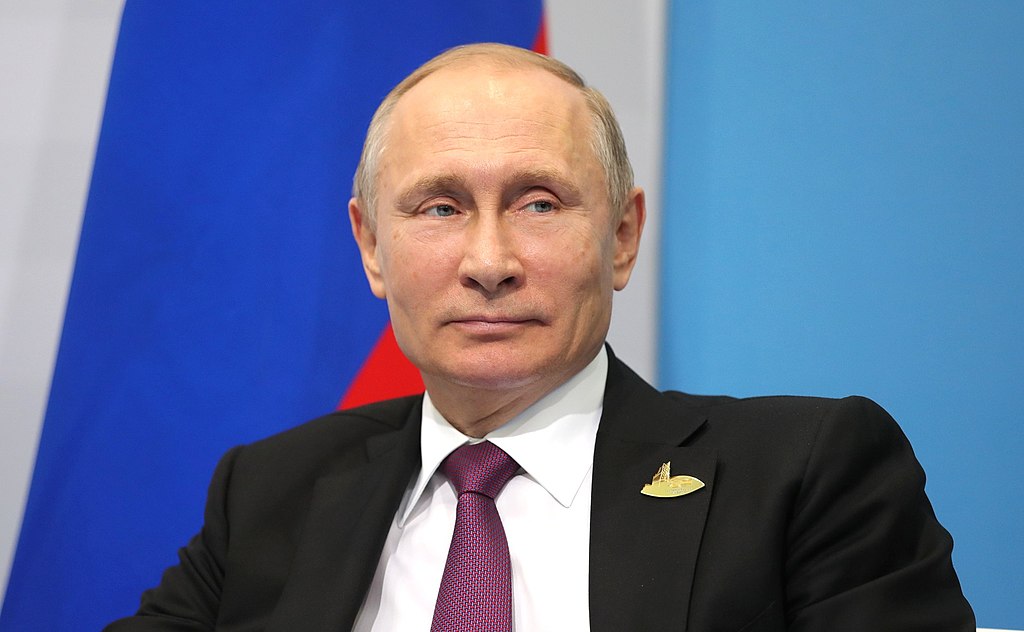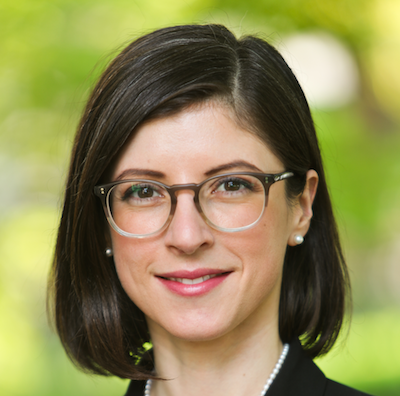Putin’s Potemkin Election
On March 18, a theatrical production took place in Russia. It involved elaborate stage settings, set designs and a handpicked cast of actors. Among them was the young socialite who held her cards close to her heart; the authoritarian mustached statesman calling for a return to better times of the past; and the ostentatious radical who saw conspiracies everywhere.

Published by The Lawfare Institute
in Cooperation With

On March 18, a theatrical production took place in Russia. It involved elaborate stage settings, set designs and a handpicked cast of actors. Among them was the young socialite who held her cards close to her heart; the authoritarian mustached statesman calling for a return to better times of the past; and the ostentatious radical who saw conspiracies everywhere. An underdog character was written out of the script. A well-funded promotional campaign—posters plastered across the country, highly produced television ads, and constant announcements on public transit—ensured a packed house the day of the premiere. Two thirds of the population took advantage of the free transportation to the event, where they were delighted to find free sausages, discounted socks, and raffles for electronics (such as iPhones) that few can afford. The production starred Russia’s most renowned personality, who largely kept out of public view until the main event. The star of the day was, of course, Vladimir Putin and the production was the Russian presidential election. Indeed, the theatrical production that took place on Sunday in Russia was a ritual, akin to a coronation. It resembled a real democratic process in appearance only.
While Sunday’s event in Russia had all the trappings of a normal democratic election, as Masha Gessen has noted, it offered citizens no real choice. These were the most well executed staged nationwide “elections” in Russia’s post-Soviet history. Everything was planned to the last detail; reportedly worried about turnout, the government even organized transportation to the polling stations. The most interesting part of the so-called elections was not the result, which was well-known in advance, but the impressive mobilization capacity displayed by the state to physically get people to polls to cast a meaningless vote in an “election” where the outcome is already known.
One may wonder why the Kremlin needed to go through all the trouble and expend such resources on a fake election. After all, the votes could easily be manipulated by the authorities to deliver the “right” results. But the authorities took extra steps to ensure that there were no surprises. For good measure, there were many instances of brazen ballot stuffing. In addition, 1.5 million votes—or two percent of the total vote—appeared overnight. Millions of additional votes were cast in regions reporting suspiciously round turnout numbers of 85, 90, and 95 percent, leading to allegations of vote rigging by opposition activists. Alexey Navalny, the only independent opposition candidate who posed even a minor threat to Putin, was blocked from running under trumped-up charges. In the lead up to the elections, Navalny called for a countrywide boycott, urging Russians to not legitimate Putin’s rule. So the pressure was on to deliver to Putin the results he wanted: 70 percent of the vote and 70 percent turnout for his 70th birthday, which he will celebrate during his fourth term.
This is because Putin craves legitimacy and acknowledgement. This desire expresses itself in his pursuit for Russia to be treated as an equal partner—a great power—on the world stage, as well as in his desire to be loved by the people. Putin wanted and needed to outdo his own results in the 2012 elections and importantly, Medvedev’s results in the 2008 elections. With 77 percent of the vote and 67 percent turnout—Putin’s new personal best in his eighteen years in power—he essentially got everything he wanted and with very little effort on his part.
Over the last few months, Putin seemed to treat political campaigning with disdain at worst and boredom at best. Putin’s pre-election tour was treated much like the election itself—a theater production. During his February visit to Siberian towns, roads were cleaned for his arrival, the handful of protestors were cleared away, and Putin engaged in a series of lectures in which he promised salary hikes, better healthcare, and develop new infrastructure. He presented no clear economic agenda—remarkable at a time when the Russian economy has been on the decline due to the drop in oil prices and western sanctions and is projected to remain stagnant. His other “campaign appearances” were produced for a television audience, including the state of the nation address on March 1, which featured bellicose militaristic rhetoric against the West and an animated display of Russia’s nuclear capabilities. This annual speech to the Russian federal assembly usually takes place on Dec. 1 but was moved up by nine months to give Putin an opportunity to “speak to the people.” The message was clear: Putin is above politics and far too busy with the real work of governing to get his hands dirty in the day to day work of campaigning.
Following his triumph on Sunday, the editor in chief of RT (the Kremlin’s propaganda network) said that Putin was no longer a president but a “vozhd”—a word describing a leader closer to a Tsar or an Emperor, which was once used to describe Stalin. One by one, Western leaders called Putin to congratulate him on his “victory:” German President Frank-Walter Steinmeier said that he hoped that Moscow and Berlin “will be able to counter alienation” and continue the two countries “trust-based dialogue.” The EU president, Jean-Claude Juncker, wrote in a letter that “our common objective should be to re-establish a cooperative pan-European security order.” And President Trump also called to discuss “shared interests,” apparently against his staff’s advice. Thus, the fake and expensive elections were well worth it: They transformed Putin from president to vozhd and Russia to a Potemkin village—all seemingly with the West’s consent.


.jpg?sfvrsn=407c2736_6)


